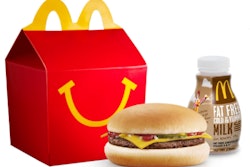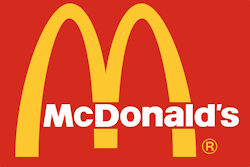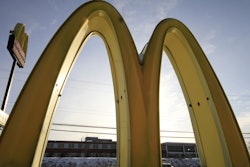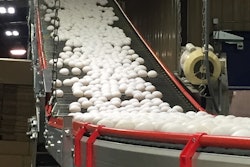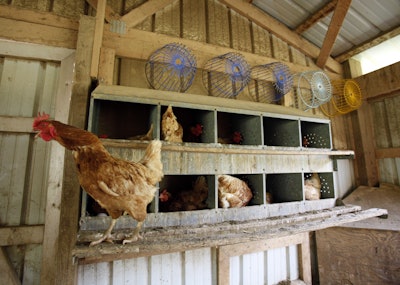
To meet consumers' changing expectations and preferences, McDonald's today announced that it will fully transition to cage-free eggs for its nearly 16,000 restaurants in the U.S. and Canada over the next 10 years.
"Our customers are increasingly interested in knowing more about their food and where it comes from," said McDonald's USA President Mike Andres. "Our decision to source only cage-free eggs reinforces the focus we place on food quality and our menu to meet and exceed our customers' expectations."
"We're proud of the work we're doing with farmers and suppliers to advance environmentally and socially conscious practices for the animals in our supply chain," said Marion Gross, senior vice president and chief supply chain officer of McDonald's North America. "This is a bold move and we're confident in our ability to provide a quality, safe, and consistent supply."
On an annual basis, McDonald's USA purchases approximately two billion eggs and McDonald's Canada purchases 120 million eggs to serve on its breakfast menus, which includes popular breakfast sandwiches, such as the Egg McMuffin and Egg White Delight. Since 2011, McDonald's USA has been purchasing more than 13 million cage-free eggs annually.
"Animal welfare has always been important to us and our customers," added Gross. "Today's announcement is another big milestone building on our work with industry experts and suppliers to improve the treatment of animals."
Today's news follows other actions announced this year by McDonald's USA to source only chicken raised without antibiotics important to human medicine by 2017 and to offer milk jugs of low-fat white milk and fat-free chocolate milk from cows that have not been treated with rbST, an artificial growth hormone.
Editors Insight: This news follows similar announcements on switching to cage-free eggs from Supervalu and General Mills Inc. The cage-free eggs movement marks one of the most significant investments the food industry has made in the humane treatment of animals. It should be a source of pride for the food industry.
Cage-free eggs is not a small investment, especially in light of the bird flu outbreak that has undermined the nation’s egg supply recently.
But consumers’ ability to learn more about the products they buy – faster -- has forced food companies to respond more quickly to public concerns.
McDonald’s, the most visible foodservice company, does a lot to shape public awareness of the food industry’s commitment to animal treatment. Every player in the food supply chain has to recognize the public will expect them to be committed to humane treatment of animals.
Animal welfare now becomes another product attribute tracked in the supply chain data base. The list of product attributes continues to grow as consumers want to know more about where their food comes from, how it is harvested and cultivated, how it is prepared, and more. The need to gather product data efficiently has become a bigger challenge in the food supply chain. 9-9-15 By Elliot Maras




